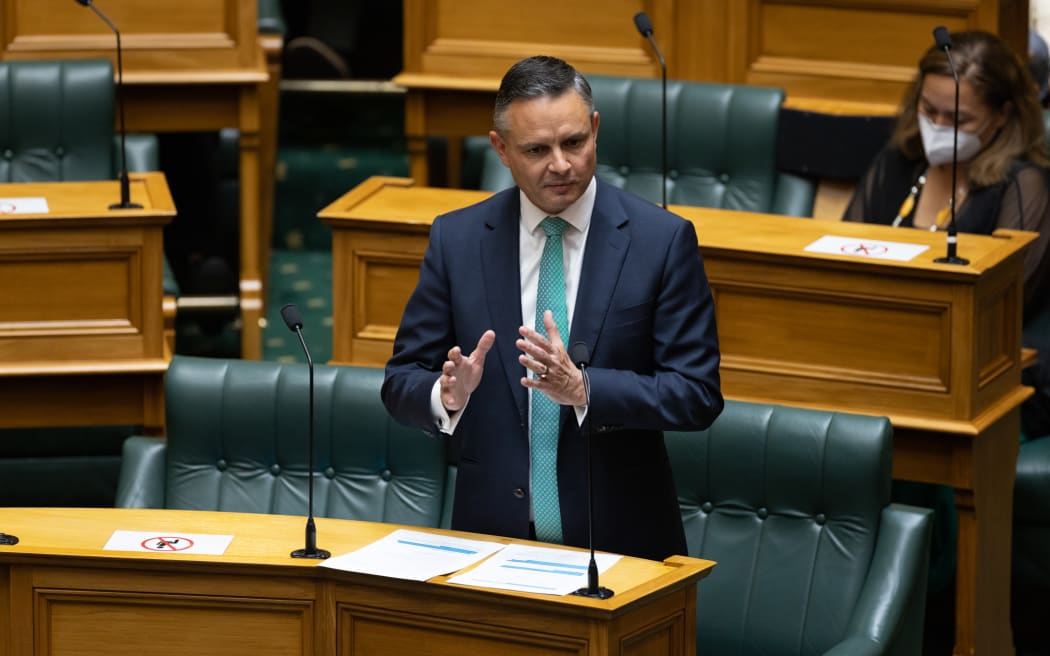Some of the Parliament’s most interesting and unexpected debates occur on Members’ Days - the alternate Wednesdays when the House debates bills put forward by backbenchers, rather than government ministers.
Members Bills range widely, originating from across the parties, and bringing a wider subject range and a broader scope of political philosophy. They sometimes deal with ideas a government might be nervous to champion, or which are so specific no government would quite get around to them.

Green Party co-leader James Shaw Photo: ©VNP / Phil Smith
This week’s members day included examples of all the above, some unexpected voting, and an unsuccessful attempt at a final legislative hurrah from former Green Party co-leader James Shaw.
The successful bills
The unexpected voting happened on two bills. The Greens surprised National’s Stuart Smith with their support during the second reading debate of his bill easing cellar-door tasting rules. The bill isn’t done yet, but is finding pretty wide support. It’s an example of a niche issue unlikely to catch a government’s attention.
The second unexpected voting was on Green MP Teanau Tuiono’s bill which was agreed to by every party except the National Party. It would reinstate the possibility of New Zealand citizenship for some now quite elderly Samoans who had their citizenship unilaterally removed by a law passed back in 1982. Unusually that debate was watched by a visiting delegation of Samoan MPs, including the Speaker of Samoa’s parliament. That bill will now go to a select committee for public feedback, which I suspect might be both fascinating and emotional.
There was also a small fixit bill from Labour MP Greg O’Connor, which will add more specificity to the requirements made on child sex offender overseas travel reporting. That had unanimous support.
A parting shot: Environment v Economy
The most divergent debate was on James Shaw’s bill, which was attempting a first reading. James Shaw had delayed his political retirement to be able to speak on it.
It would add another right to those guaranteed by the New Zealand Bill of Rights (an aspect of New Zealand’s constitution). That “everyone has the right to a clean, healthy, and sustainable environment.” James Shaw said that around “about 80 percent of countries around the world already recognise this right in their domestic legal systems”
This was a concept bill of the kind that might cause governments to fret about implications and consequences - the current governing parties were all definitely against it.
It sparked a fascinating and ferocious debate over gaping philosophical divides. The most arresting was the argument over whether the environment or economic growth was more important. The government speakers tended to fall firmly on the side of economic growth.
Penny Simmons (National) argued it “carries the risk of it inadvertently erecting barriers to economic development and investments.” She believed that removing environmental rules and regulations would protect the environment.
Simon Court (ACT) derided the Bill as legislating for the “1970s socks-and-sandal vision of a Green world that has failed. “Greenies, like James Shaw, believed that civilisation would end because we'd run out of water, we'd run out of food, and we'd run out of energy; it turns out we didn't”
Tanya Unkovich (NZFirst) saw a healthy environment as an “competitive advantage” and argued that all environment policy should be aimed at creating employment and sustainable wealth. She was worried that the right to a sustainable environment “may inadvertently restrict economic development, or even create a legal uncertainty that could deter investment and growth.”
It’s worth noting that those were the more strident speakers for the governing side of the House. The newer members seemed less strident in rejecting the concept, using the word ‘unfortunately’ a fair bit.
The three parties arguing in favour (Labour, Green, Maori) were definitely strident.
Arena Williams (Labour) - “It is a stain on the record of this Parliament that we are not sending it to select committee. All of the members of this House should be able to see that this is something worthy of debate.”
Re the nature vs economy distinction James Shaw noted “we humans are not superior to or separate from the natural world. We do not exist independently of other life on Earth. We depend on it.”
In first reading debates for a members bill the MP championing the legislation gets a second speech at the end. James Shaw’s second speech included a biographical note in response to the earlier arguments:
“My first female ancestor in New Zealand, Annie Mathilda Baggett, was the granddaughter of a Jamaican plantation slave during a time when slavery was seen as a vital component of the global economy and the abolition of slavery was opposed as a threat to financial stability and economic development. People pollute the atmosphere. They destroy rivers and species and ecosystems for the very same reasons that they used slave labour or seized land that once belonged to a people that they considered to be inferior. There is always debate and controversy about the expansion of rights. Whenever the status quo is threatened, there are always doomsayers saying that civilisation will collapse, or vested interests that are predicting that the economy will be destroyed - and we heard some of those arguments today. But the changes that seemed so threatening never are, in hindsight, and the warnings that seem so serious to so many people always sound so absurd to subsequent generations.”
In the end James Shaw did not get to see his final bill survive him. It was voted down. He will now bow out of politics, with a valedictory speech planned for the very beginning of May.

